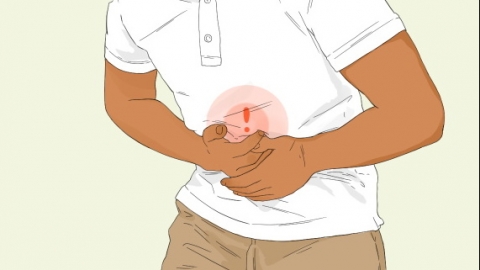What is the best way to treat gastrointestinal bleeding?
Generally, gastric bleeding may be caused by factors such as alcohol irritating the gastric mucosa, taking medications that damage the gastric mucosa, acute erosive gastritis, gastric ulcers, or rupture of esophageal and gastric varices. It is recommended to seek timely medical attention, identify the underlying cause, and then improve the condition through general care and medication under a doctor's guidance. Detailed explanations are as follows:

1. Alcohol irritation of the gastric mucosa: Alcohol damages the gastric mucosal barrier, causing mucosal congestion and bleeding, usually minor seepage. Immediately stop alcohol consumption, rest in bed, and choose warm, cool liquid foods to avoid irritating the stomach.
2. Medications that damage the gastric mucosa: Long-term use of nonsteroidal anti-inflammatory drugs (NSAIDs) such as aspirin enteric-coated tablets or ibuprofen capsules can damage the gastric mucosa and cause bleeding. Immediately discontinue the relevant medications and switch to alternative drugs with less gastric irritation as directed.
3. Acute erosive gastritis: Acute mucosal erosion and bleeding in the stomach, often accompanied by upper abdominal discomfort. Fasting or consuming a liquid diet is recommended to reduce the burden on the stomach; follow medical advice to take medications such as famotidine tablets, ranitidine capsules, or cimetidine tablets to suppress gastric acid production. Concurrently use sucralfate suspension to protect the mucosa and promote healing of the erosions.
4. Gastric ulcer: Bleeding occurs when the ulcer damages blood vessels, possibly accompanied by black stool. Fasting is required during the bleeding episode, and a gradual transition to soft foods can begin after the bleeding stops; follow medical instructions to use medications such as rabeprazole sodium enteric-coated tablets, bismuth potassium citrate capsules, or amoxicillin capsules to reduce gastric acid secretion, protect the ulcer surface, and fight infection.
5. Rupture of esophageal and gastric varices: Liver cirrhosis leads to dilated and ruptured veins, causing massive bleeding. Promptly establish intravenous access to replenish blood volume and, as directed by a physician, administer medications such as somatostatin injection, octreotide injection, or posterior pituitary extract injection to reduce visceral blood flow.
In daily life, avoid alcohol consumption, use medications that damage the gastric mucosa cautiously, maintain regular eating habits, and avoid spicy or hard foods. Strictly follow medical instructions during treatment, attend regular follow-up appointments, and manage overall health to promote gastric recovery and reduce the risk of recurrent bleeding.






